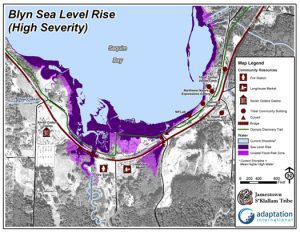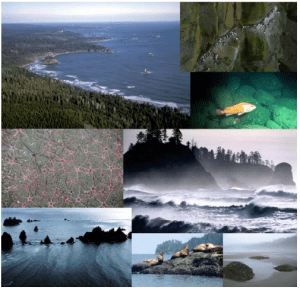Sea Level Rise Outreach – DRAFT ARTICLE FOR A COUPLE MONTHS
Washington Sea Grant, in partnership with the Jamestown S’Klallam Tribe and the University of Washington Program on the Environment, is developing an outreach plan for a group of homes on the Strait of Juan de Fuca, Washington State, that have been identified as highly vulnerable to sea level rise and coastal flooding. The outreach plan will try to identify ways to work with homeowners to identify options that will both protect their infrastructure and investment, while avoiding hard armoring and shoreline engineering.

